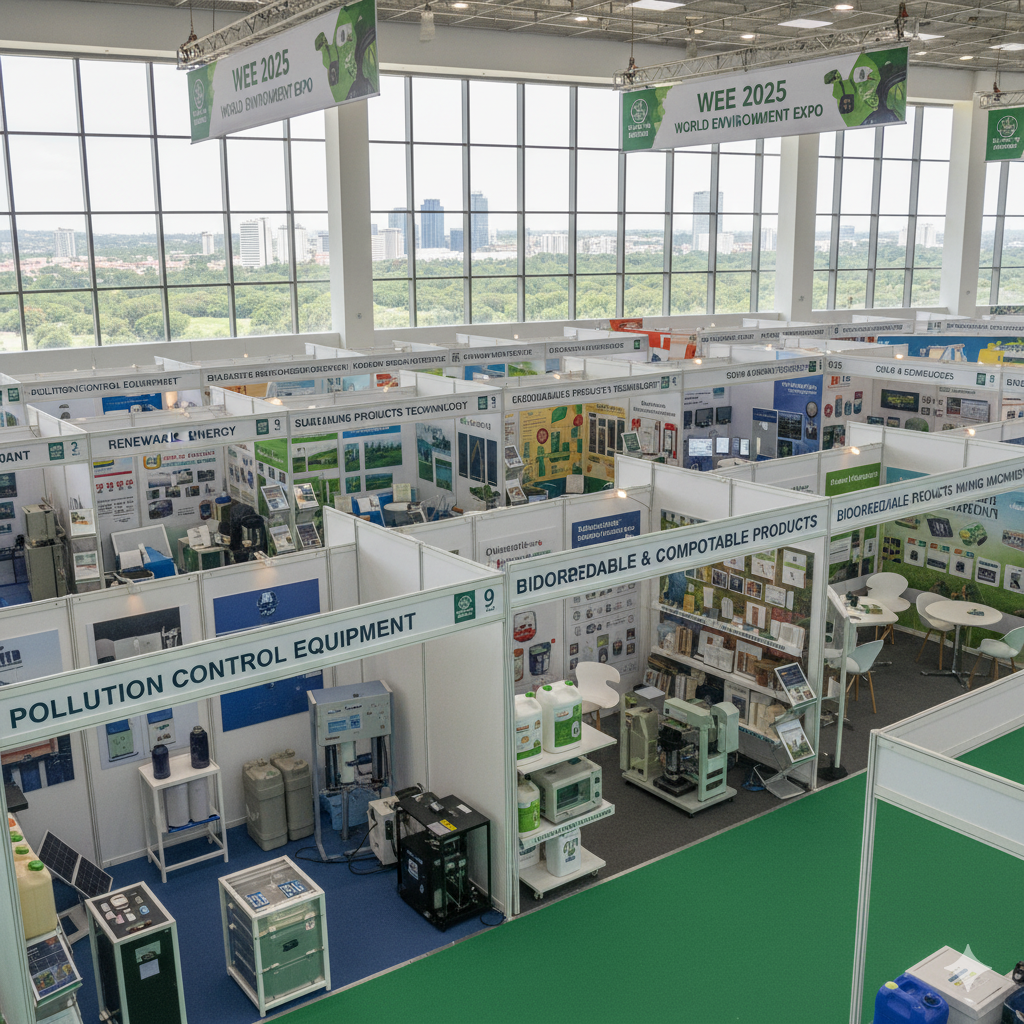WEE 2025 (Kenya) 
WEE 2026 (India) 




WEE 2025 Kenya is a B2B Global business platform that will bring together international environmental technology and equipment manufacturers and suppliers to showcase the very best of technologies in the areas of environmental protection, services, renewable energy, waste management, sustainable buildings, water management, new innovations, and energy efficiency under one roof during World Environment Expo 2025 Kenya.
The main aim of the expo is to promote India's and others country's products, equipment's technology in Africa region, as there is a huge business opportunity in sustainability development area, manufacturers and technology provider can find a new market in this region and generate good business opportunities, collaboration with the Kenya and African entrepreneurs

The environmental revolution has been in the making for almost four decades and has
forever changed how companies do business. While it began with corporations in a state
of denial about their impact on the environment, most companies today have accepted
their responsibility to do no harm. Products and processes are becoming cleaner, and as
these changes take place, the environment is improving. In the industrialized world,
more and more companies are "going green" as they realize that reducing pollution and
increasing profits can go hand in hand.
The onus of saving the earth has moved from companies to countries. Time has come to put
the net zero goals into action.
There are only 2 countries that have achieved their target so far,
while others have moved it to 2030 and beyond. India has pledged
to achieve net zero emissions by 2070 and the government's
commitment is visible with India achieving 40% of its power
capacity from non-fossil sources, 9 years ahead of target in
2022.
When we think of mitigating climate change and reducing carbon footprints, turning off
lights and driving less tops the list of activities. However, organic and inorganic
waste produced by each individual is also a huge contributor to global greenhouse gas
emissions. Waste is an inevitable biproduct of human life.
When we think of mitigating climate change and reducing
carbon footprints, turning off lights and driving less tops the list of activities.
However, organic and inorganic waste produced by each individual is also a huge
contributor to global greenhouse gas emissions. Waste is an inevitable biproduct of
human life.
Improper waste management not only creates litter everywhere but also harms our
environment, leading to air, land, and water pollution. The key to doing our part is to
refuse, reduce, reuse, and recycle. Refuse to purchase what is unnecessary. Reduce waste
production by buying only what you need. Reuse items instead of discarding them after a
single use. Recycle what cannot be reused.